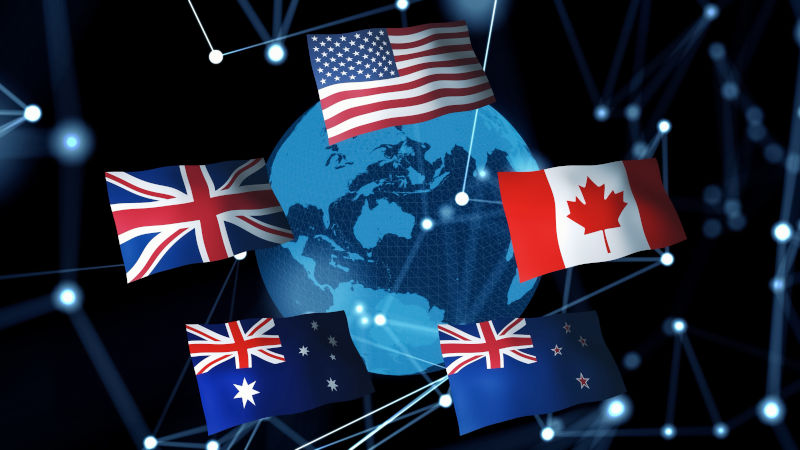“We often advocate the promotion of a rules-based order. From time to time, respect for the UN Charter is also invoked. But for all the talk, there are still a few nations who shape the agenda and seek to define the norms. This cannot go on indefinitely. Nor will it go unchallenged.” – Subrahmanyam Jaishankar, India Minister of External Affairs at UN General Assembly, 26 September 2023.
For a long time, leaders and media from the West have given Prime Minister Modi’s India a pass or an easy time preferring to focus attention on the threat and deficiencies of China while lauding India as a bastion of democracy and model for the developing world. Increasingly, Modi’s ‘muscular’ Hinduism – not its authoritarianism or illiberalism – is being touted by Australian’s political parties and mainstream media as the strongest defence against Xi’s Marxist atheist China.
Thus the glaring reality and inconvenient facts of Modi’s governance since accession to power – a more deeply flawed democracy, an inability to tackle endemic violence, bigotry, poverty and socio-economic discontent, and heightening repression against non-Hindu minorities – are ignored in the hope of recruiting India as an ally to contain, contest and even bring down China.
Now that the big story in international relations – next to the ongoing war in Ukraine – is the fallout from the sensational revelation by Canadian prime minister Justin Trudeau that Indian operatives were involved in the political assassination of Canadian citizen and Khalistan activist Hardeep Singh Niijar, the question being asked is what will happen next.
For now, Canadian and Indian governments have stuck to their initial positions. Following India’s rebuttal of his announcement that Canadian security and intelligence agencies are “pursuing credible allegations [that] … agents of the Government of India” were behind the assassination of an Indian-born Canadian citizen in British Columbia last June. – a charge India immediately labelled as “absurd” and “motivated” – Trudeau has repeated the charge and emphasised that in pursuing the case, Canada “is the country standing up for the rules based international order that we believe in”.
On the Indian side, besides the official response of denial and non complicity amplified by a pugnacious mainstream and social media focusing on personalised bashing of Trudeau, there has been an accompanying disparaging description by Foreign Minister spokesman, Arindam Bagchi, of Canada and its “growing reputation as a place, as a safe haven for terrorists, for extremists, and for organised crime”; and a counter demand that the Canadian government cracks down on anti-India groups operating from Canada.
The US, the most important player in this row between its two political allies on the world stage – Canada, a minor power seen by some as a US lackey and doormat; and India, an aspiring superpower – has emphasised the need for the two countries to work together on the case. In response to a question about the issue, US Secretary of State Blinken said: “We want to see accountability, and it’s important that the investigation runs its course and leads to that result.”
Since then it is clear that the accountability that the US has called out for will not be forthcoming.
Five Eyes finger pointing
On the investigation itself, according to US Ambassador to Canada David Cohen, it was “shared intelligence among Five Eyes partners” which informed Trudeau of the possible involvement of Indian agents in the murder. The Five Eyes network of the US., Britain, Canada, Australia and New Zealand has been described as “one of the most comprehensive known espionage alliances in human history”.
With the network’s main targets clearly Russia and China and with India openly identified by US Congress Subcommittee on Intelligence and Special Operations as a potential partner to work with in “confronting great power competition [from China and Russia]” it is most likely that Trudeau does have the evidence – although he has refused to reveal it – on Indian official involvement in this political assassination case. Noteworthy too is that the Five Eyes countries of the UK and Australia have said they are monitoring the situation and communicating with Indian officials.
“The Five Eyes alliance is sort of an artifact of the post World War II era where the Anglophone countries are the major powers banded together to sort of co-operate and share the costs of intelligence gathering infrastructure. … The result of this was over decades and decades some sort of a supra-national intelligence organisation that doesn’t answer to the laws of its own countries.”
—Edward Snowden
So what accountability, results and outcomes can the world expect?
Accountability and outcomes
Firstly, the two nations have predictably engaged in a diplomatic tit for tat follow up. The expelling of diplomats and issuance of travel advisories are par for the course to play to national galleries but are unlikely to be broadened in scope.
So also the impact on economic relations although a trade treaty agreement was put on hold. More significant is the impact on Indian students since India is the largest source country for international students in Canada. Both impacts, however, are seen as lasting for a short duration.
Is the sound and fury show over
For Trudeau and Modi now that the immediate sound and fury show is over, there is likely to be a ceasefire and return to normal relations. But the impact on their respective domestic politics could be significant.
Modi’s domestic standing has emerged stronger from the episode, and this will stand him and his BJP party in good stead in state elections and the Indian general election due next year. Trudeau, on the other hand, has not benefited from this entanglement with polls showing a plunge in his popularity, and an IPSOS survey amidst the Indian standoff revealing that only 31 percent of Canadians now prefer him as their leader, while 40 per cent are in favour of the Conservative leader Pierre Poilievre. The fact that he has not substantiated the charge of India’s complicity – although repeatedly challenged by Indian media – indicates that Trudeau is unwilling to further antagonise Modi by pursuing the case despite his initial pronouncement. Loss of face in this instance may be easier to deal with than loss of power.
The wild card for Modi’s India is the impact on the Sikh diaspora in Canada, Australia and the UK, and Sikh community in India. The discord and tensions have had ripple effects in disparate areas including remittances from Canada to Punjab; community sense of belonging and loyalties; and most importantly on the Sikh struggle for a separate ethno-religious homeland of Khalistan. That struggle killed tens of thousands in the 1980s and ’90s, and was eventually crushed. Today the independence drive has been provided with a renewed and unpredictable impetus.
The Five Eyes members, including Australia, will definitely be monitoring developments in this controversy. They will also be actively involved in behind the scenes work to help cover up Indian involvement and to ensure that India, whatever its failure in abiding by the US or Canadian version of a rules based international order, becomes and remains the centrepiece of their Indo Pacific strategy to maintain western dominance.

